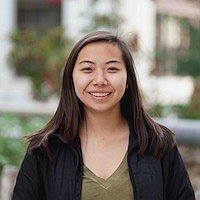The Sparse Abstract Machine
This talk introduces the Sparse Abstract Machine (SAM), an abstract machine model for targeting sparse tensor algebra to reconfigurable and fixed-function spatial dataflow accelerators. SAM defines a streaming dataflow abstraction with sparse primitives that encompass a large space of scheduled tensor algebra expressions. SAM dataflow graphs naturally separate tensor formats from algorithms and are expressive enough to incorporate arbitrary iteration orderings and many hardware-specific optimizations. In this talk, we also present Custard, a compiler from a high-level language to SAM that demonstrates SAM’s usefulness as an intermediate representation. Following Custard, the SAM system also automatically binds from SAM to a streaming dataflow simulator. This talk will also provide a brief evaluation of SAM as: a general system for the whole domain of sparse tensor algebra, a design-space exploration tool for sparse accelerator performance, and as a representation that can model dataflow hardware implementations.
Sun 18 JunDisplayed time zone: Eastern Time (US & Canada) change
09:00 - 11:00 | |||
09:00 5mDay opening | Introduction CTSTA Fredrik Kjolstad Stanford University | ||
09:05 15mTalk | Software and Hardware for Sparse ML CTSTA Fredrik Kjolstad Stanford University | ||
09:20 15mTalk | Integrating Data Layout into Compilers and Code Generators CTSTA Mary Hall University of Utah | ||
09:35 15mTalk | Tackling the challenges of high-performance graph analytics at compiler level CTSTA Gokcen Kestor Pacific Northwest National Laboratory | ||
09:50 10mPanel | Discussion CTSTA | ||
10:00 5mBreak | BreakSocial CTSTA | ||
10:05 15mTalk | Challenges and Opportunities for Sparse Compilers in LLM CTSTA Zihao Ye University of Washington | ||
10:20 15mTalk | The Sparse Abstract Machine CTSTA Olivia Hsu Stanford University | ||
10:35 15mTalk | TeAAL: A Declarative Framework for Modeling Sparse Tensor Accelerators CTSTA Nandeeka Nayak University of Illinois at Urbana-Champaign | ||
10:50 10mPanel | Discussion CTSTA | ||
